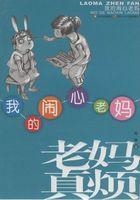As to the Conquests, Germanist views have been formulated with great authority by Freeman. A comparison of the course of development in Romance countries with the history of England, and a careful study of that evidence of the chronicles which Kemble disregarded, has led the historian of the Norman Conquest to the conclusion, that the Teutonic invaders actually rooted out most of the Romanised Celtic population of English Britain, and reduced it to utter insignificance in those western counties where they did not destroy it. It is the only inference that can be drawn from the temporary disappearance of Christianity, from the all but complete absence of Celtic and Latin words in the English tongue, from the immunity of English legal and social life from Roman influence. The Teutonic bias which was given to the history of the island by the Conquest of Angles and Saxons has not been altered by the Conquest of the Normans. The foreign colouring imparted to the language is no testimony of any radical change in the internal structure of the people: it remained on the surface, and the history of the island remained English, that is, Teutonic. Even feudalism, which appears in its full shape after William the Bastard's invasion, had been prepared in its component parts by the Saxon period. In working out particulars Freeman had to reckon largely with Kemble's work and to strike the balance between the conflicting and one-sided theories of Thierry and Palgrave. Questions of legal and social research concern him only so far as they illustrate the problem of the struggle and fusion of national civilisations. His material is chiefly drawn from chronicles, and the history of external facts of war, government, and legislation comes naturally to the fore.
But all the numberless details tend towards one end: they illustrate the Teutonic aspect of English culture, and assign it a definite place in the historical system of Europe.
Stubbs' 'Constitutional History,' embracing as it does the whole of the Middle Ages, is not designed to trace out some one idea for the sake of its being new or to take up questions which had remained unheeded by earlier scholars. Solid learning, critical caution and accuracy are the great requirements of such an undertaking, and every one who has had anything to do with the Bishop of Oxford's publications knows to what extent his work is distinguished by these qualities. If one may speak of a main idea in such a book as the Constitutional History of a people, Stubbs'
main idea seems to be, that the English Constitution is the result of administrative concentration in the age of the Normans of local self-government formed in the age of the Saxons. This conclusion is foreshadowed in Palgrave's work, but what appears there as a mere hypothesis and in confusion with all kinds of heterogeneous elements, comes out in the later work with the overwhelming force of careful and impartial induction. Stubbs'
point of view is a Germanist one. The book begins with an estimate of Teutonic influence in the different countries of Europe, and England is taken in one sense as the most perfect manifestation of the Teutonic historical tendency. The influx of Frenchmen and French ideas under William the Conqueror and after him had important effects in rousing national energy, contributing to national unification, settling the forms of administration and justice, but at bottom there remained the Teutonic character of the nation. The 'Constitutional History'
approaches the question of the village community, but its object is strictly limited to the bearing of the problem on general history and to the testimony of direct authority. It starts from the community in land as described by Caesar and Tacitus, and notices that Saxon times present only a few scattered references to communal ownership. Most of the arable land was held separately, but the woods, meadow, and pasture still remained in the ownership of village groups. The township with its rights and duties as to police, justice, and husbandry was modified but not destroyed by feudalism. The change from personal relations to territorial, and from the freedom of the masses to their dependency, is already very noticeable in the Saxon period. The Norman epoch completed the process by substituting proprietary rights in the place of personal subordination and political subjection. Still even after conquest and legal theory had been over the ground, the compact self-government of the township is easily discernible under the crust of the manorial system, and the condition of medieval villains presents many traces of original freedom.















